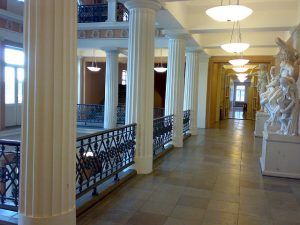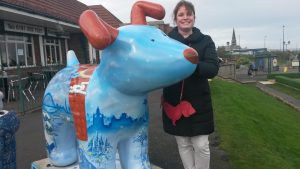Project Researcher Dr Suzie Thomas is giving a presentation at the upcoming workshop “Difficult Memories – Key Terms” hosted by the University of Helsinki on Friday 4th November, 2016. The event is part of the international ERA-NET research scheme “LivingMemories”, which connects researchers across six different countries.

f Interior of the University of Helsinki’s Main Building. Image by Näystin, available under CC BY-SA 2.0.
Suzie will give a presentation titled ‘Difficult Memories in Finland’s far north: “Dark Heritage” and the legacy of the Lapland War’. The abstract is as follows: Official national narratives and personal recollections of times of conflict are frequently at odds. Uncomfortable truths can become silenced, whilst more seemingly “glorious” events become celebrated. Like most of Europe, Finland was drawn into the Second World War, for various reasons becoming a co-belligerent with Nazi Germany for much of the conflict. Until late 1944, some 200,000 German soldiers were stationed in Finland, many in Finnish Lapland. Reports suggest that interactions between locals and Germans were largely amicable. It was not until the 1944-45 so-called Lapland War (resulting from a treaty agreement between Finland and the Soviet Union to expel the Germans), that town and infrastructure destruction occurred due to the German army’s scorched earth tactics as they retreated into Norway. The combination of this violent end to Finnish-German cooperation, and subsequent embarrassment at having sided with the Nazis, have arguably led to the downplaying of the significance of the Lapland War in the national interpretation of Finland in the Second World War. At the same time locally, there is continued interest in this period; expressed through local hobbyist activity and even museum exhibitions. In this paper I briefly introduce the historical background to our case study, and then introduce some of the ways in which this difficult heritage has been silenced or highlighted – depending on the circumstances. I debate whether it is correct to suggest that this period and place has a “dark heritage” at all, and consider the impact of our own research activities on the local communities.
Followers on Twitter should look out for the project hashtag #LivingMemo, and for the seminar itself also look for @helsinkiuni, #research and #keyterms.

